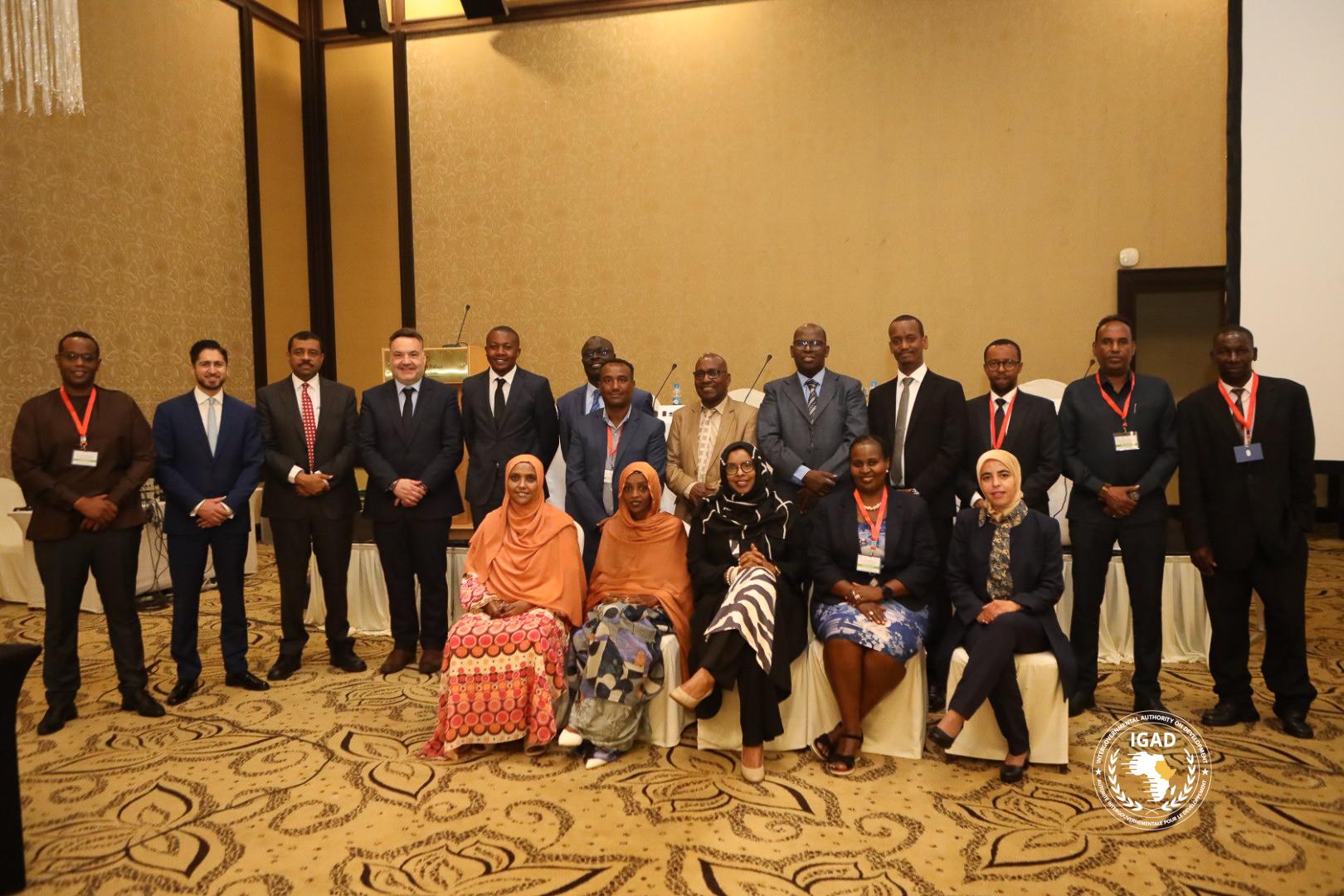February 3, 2023 (DJIBOUTI, Djibouti): The Intergovernmental Authority on Development (IGAD) and some partners yesterday closed a two-day training workshop on the Convention on the International Transport of Goods under cover of the International Road Transport (TIR) carnets, and Conventions on the Contract for the International Carriage of Goods by Roads (CMR) in IGAD region.
This initiative has been co-organized in partnership with Islamic Development Bank (Department of Cooperation and Capacity Development, IsDB-CCD), Islamic Centre for Development of Trade (ICDT), United Nations Economic Commission for Europe (UNECE) and World Road Transport Organization (IRU)
The workshop’s main objective was to present the TIR and the CMR conventions in the IGAD region to explain and illustrate all advantages and benefits of their implementation for all stakeholders, therefore assisting them in becoming contracting parties to these conventions.
Government officials from the Ministries of Trade and Customs Administrations of the IGAD Member States focused on addressing the technical aspects of implementing the two conventions related to the international transport of goods, attended the training workshop. It provided the participants with an opportunity to learn about the benefits of implementing these conventions, including the reduction of customs administrative procedures and the adequate allocation of resources for proper risk assessment. The training also highlighted the need to simplify transit operations and manage cross-border transport data.
During the opening session on Day, the Director of Economic Cooperation and Regional Integration of IGAD, Dr. Osman Babikir, gave the inauguration remarks on behalf of the IGAD Executive Secretary.
Dr. Osman noted that the two-day workshop provided an opportunity to draw attention to regional structural challenges of trade and border management and contribute to developing durable solutions. He noted: “Today, we will learn about new ideas and techniques practiced widely around the globe. It is, in fact, a mixture of migration of ideas, cross-fertilisation, and peer learning. One of the reasons why we have low intra-regional trade and investment is our fractured or fragmented types of internal markets, our thick or restrictive borders, and our highest trade costs. We have seen many times in our borders or even seaports how traffic jams, duplicative paperwork, and countless rounds of inspections which can hinder trade at border crossings”.
Speaking at the opening session, the Director of Transport, Ministry of Transport and Equipment of Djibouti, Mr. Dileyta Sultan, underlined the importance of the two conventions in facilitating cross-border trade within the region and Africa as a whole. He stated: “I think for us in Africa, and here in our region as part of the continent, roads remain the dominant mode of transport; therefore, the two conventions are of particular relevance to us since they will open our perspectives of integration to international trade routes.”
In his remarks, the IsDB Senior Regional Integration Specialist, Mr. Nazar Eltahir, underlined the importance of the two conventions as a driver of regional integration and economic development. “The choice of this subject emanates from our conviction of the extreme importance of land transport in the development of intra-OIC trade, especially in the region of sub-Saharan Africa, in particularly landlocked countries, within the framework of the implementation of the joint Islamic Centre for Development of Trade (ICDT), Cooperation and Capacity Development Department of Islamic Development Bank (CCD), United Nations Economic Commission for Europe (UNECE) and World Road Transport Organization (IRU) program of the TIR of African member countries of the Organization of Islamic Cooperation (OIC),” he added.
Some of the benefits of the implementation of the two conventions are:
- Encourage progressive liberalization of cross-border trade and investment policies in line with the African Continental Free Trade Area Agreement (AfCFTA) protocols to establish the groundwork for regional value chains in Africa;
- Streamline customs and border procedures and upgrade infrastructure to reduce long delays at borders, which have slowed the movement of goods and raised trade costs, and develop effective logistics hubs;
- Strengthen cross-border trade and investment in services by facilitating trade in digital services, removing Foreign Direct Investment (FDI) restrictions, and liberalising the movement of workers.
The two-day training workshop ended as delegates received certificates of participation in the training on the importance of the TIR and CMR conventions in the IGAD region – pivotal knowledge to member states towards becoming contracting parties to these conventions.
The workshop was held in partnership with the Islamic Development Bank (IsDB), the Islamic Centre for Development of Trade (ICDT), the United Nations Economic Commission for Europe, and the International Road Transport Union (IRU),

